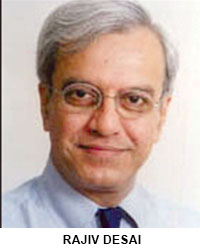

Long years ago, I was at lunch with Michael McGuire, foreign editor of Chicago Tribune, a newspaper that published and syndicated my columns. The venue was Sayat Nova, an Armenian restaurant on Ohio Street in the buzzy Streeterville neighbourhood, a lively luncheon place for those of us fortunate enough to have offices on Michigan Avenue, the glittering street that is Chicago’s answer to New York’s Fifth Avenue.
Dotted with fabulous stores, boutiques, restaurants, and buildings including landmarks like the Wrigley Building and the Tribune Tower plus the riverfront One Illinois Center, a slick modern glass structure where my office was, Michigan Avenue was famous. The name was used as a title for an instrumental piece in a Rolling Stones album. To walk up and down the avenue was a distinct privilege; we were an enviable lot.
We lunched almost daily on Armenian delicacies at Sayat Nova. For our loyal custom, we were invariably rewarded with an after-lunch cognac by Arsen Demirdjian, the owner. It was truly the best of times.
Usually, we just sat at the bar counter and talked about this and that. On that afternoon, though, we sat at a table talking about world affairs, especially India’s dashing new leader Rajiv Gandhi. I had just written a cover story on him for the paper’s Sunday magazine. Unsurprisingly, Mike led with a question: will Rajiv change things?
The conversation veered round to the Indian government’s notorious chip on the shoulder foreign policy. Indeed, Mike had often been at the receiving end of complaints from the Indian consul general about critical coverage of the jerry-rigged Janata governments of the late 1970s. And about feature stories on child marriages and bride burning. Through Rajiv Gandhi’s term, however, the external affairs ministry remained admirably quiet and dealt with the world in a mature way.
The Sayat Nova interlude came to mind when I witnessed the entire weight of the Modi government and its fanboys and chorus girls lean on Rihanna, the pop singer who tweeted in favour of the ongoing farmers’ protest on the outskirts of Delhi. It’s beyond ridiculous the government, which said nothing about Chinese aggression on the Himalayan borders or the coup in Burma, kicked up a royal fuss about Rihanna.
The chip on the shoulder is back big time. It is a sign of the leadership’s deep anxiety about India’s English-speaking sophisticates, who stride the world with consummate ease and breezy confidence. With notable exceptions, this small but influential segment of the population has proved immune to the virus of communal politics. It stands in marked contrast to the sullen resentment of the saffron crowd who see their parochial lifestyles including diet and habits as a handicap in global circles. It’s a cassoulet of political psychology that combines inferiority complex with a search for standing.
Search for status seems to drive the current dispensation. A clue can be derived from the changed appearance of the leader: from a fierce Hindu hriday samrat (emperor of hearts) of yore to an earnest tapasvi (ascetic) of the overgrown white hair and unkempt white beard. After the statesmanlike Jawaharlal Nehru, self-effacing Lal Bahadur Shastri, determined Indira Gandhi, sophisticated Rajiv Gandhi, scholarly Manmohan Singh, this projection of persona is unusual, to say the least.
Having transformed governance to a spectacle of montages, now fierce, now gentle, the regime seems unconcerned about the institutional damage its policies have caused: from demonetisation down. While mainstream media continue to be cheerleaders, a growing number of people in India and abroad are beginning to express disbelief. But the ruling party pays no heed to the mayhem caused by its unthinking actions; it remains firm in the belief that electoral victory is like a dip in the Ganges which washes away all sins.
What is clear is that voters expect governance. Given the economic collapse, widespread protests, Chinese aggression, and not least the deadly Covid pandemic, the saffron party may quickly be judged inadequate to the task of governing this large, diverse, poor country.
The consequences are a huge contraction of GDP, rising joblessness, increasing civil unrest, disturbed relations with neighbours, a military assault on sovereignty. Most important is India’s standing in the global order. That is why the government massages readouts of a plain vanilla message from the US State Department to fudge the meaning to where it sounds like an endorsement of the Modi government. These are played up by lapdog media and then trumpeted through the community of believers, known as bhakts.
Masters at managing perceptions, the ruling dispensation may find that no amount of posturing and headline management can obscure the underlying reality. There is no quicker downward spiral than lost jobs, higher prices, loss of sovereign territory, and given the pandemic, fear of life loss.
Also read: Budget 2021-22 ignores NEP 2020